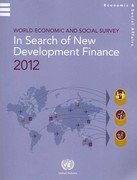Question
You walk into the offices of Future Security Bank early in the morning on February 2nd, 2006. You are employed by the bank to market
You walk into the offices of Future Security Bank early in the morning on February 2nd, 2006. You are employed by the bank to market proprietary financial products to moderate to high net worth customers. Going into the break room to grab a cup of coffee, you flip on the TV to Bloomberg to catch the morning financial news. The commentator says "... and the latest release shows that consumer confidence has fallen for the second straight month. Given this, and the previous statistics on business inventories, it is not surprising that investors are nervous. So, now, all eyes turn to the Fed". You switch the TV off. It looks like the economy is going to be the topic of discussion for the next week. More importantly, the people you work with will expect you to know what is happening (and maybe explain it to them). It is going to be a busy day. Future Security Bank is a mid-tier regional bank, focused primarily on consumer and small business lending. Historically the bank has funded its loans through traditional bank deposits. However, given the rapid development in convenience of mutual funds and online investing, the bank has shifted its focus to offering a larger range of financial products and advice to its high-end customers. This included offering its own mutual funds, annuity and insurance products from other companies, and financial planning courses. Future Security Bank has a large staff dedicated to customer relations. Jobs range from handling accounts to marketing consumers' products to providing financial advice. Your job is to work with this staff to determine what the best products are and how best to market them. You interact daily with people from all over the bank, including some of the bank's major customers (since they are a good source of information on how the company is doing). A large part of the bank's customer base is retired individuals who have had long-term relationships with the bank. These individuals have a range of financial expertise, some being dedicated followers of the financial news, while others have never heard of the Federal Reserve. The bank's customers get their income from a variety of sources. Most have traditional bank accounts. Some, particularly the middle age customers, have substantial holdings of stock. Retired investors also typically have some sort of pension or retirement plan. The bank's customers can be very concerned about changes in the economy. Those holding stock are worried about corporate profitability; the more profitable the company, the higher the value of the stock. Some of those with pensions have other concerns. Often, the value of their pensions does not keep up with inflation. These investors tend to watch for signs of future inflation that could mean they would have a lower real income in the years ahead. The growth of GDP seems to be slowing, leading many investors to be concerned about the future prospects for the economy. One indicator of the weakness of the economy is the decline in consumer confidence, a measure of how optimistic consumers are about the strength of the economy in the near future. If this decline continues, it could lead to a decrease in consumer spending. Also, firms have spent the last two years dramatically expanding their capacity by buying new machinery and building new factories. Because of this, it is expected that companies are likely to rein in spending on investment over the next year. The Economic Research Group of Future Security Bank has provided historical data on GDP along with forecasted values for the upcoming year (see the spreadsheet on the course website). The forecasts are based on the information given above, but the forecasts also assume that the Federal Reserve will not take action. The Federal Open Market Committee (FOMC) of the Federal Reserve will be meeting in two weeks to make a decision on monetary policy. The leading issue at that meeting will be the weakness in the economy. Many of the members of the FOMC believe that the Federal Reserve should take immediate action to counter the forecasted decline in the economy.
The spreadsheet Future Security Bank, provides quarterly data for nominal and real GDP. Use this data set to compare the projected quarterly growth rates of the economy during 2006 with the average since 1990 (which measure of GDP do you want to use?). Does this explain why investors are concerned? Determine the rate of inflation expected for 2006.
Step by Step Solution
There are 3 Steps involved in it
Step: 1

Get Instant Access to Expert-Tailored Solutions
See step-by-step solutions with expert insights and AI powered tools for academic success
Step: 2

Step: 3

Ace Your Homework with AI
Get the answers you need in no time with our AI-driven, step-by-step assistance
Get Started


